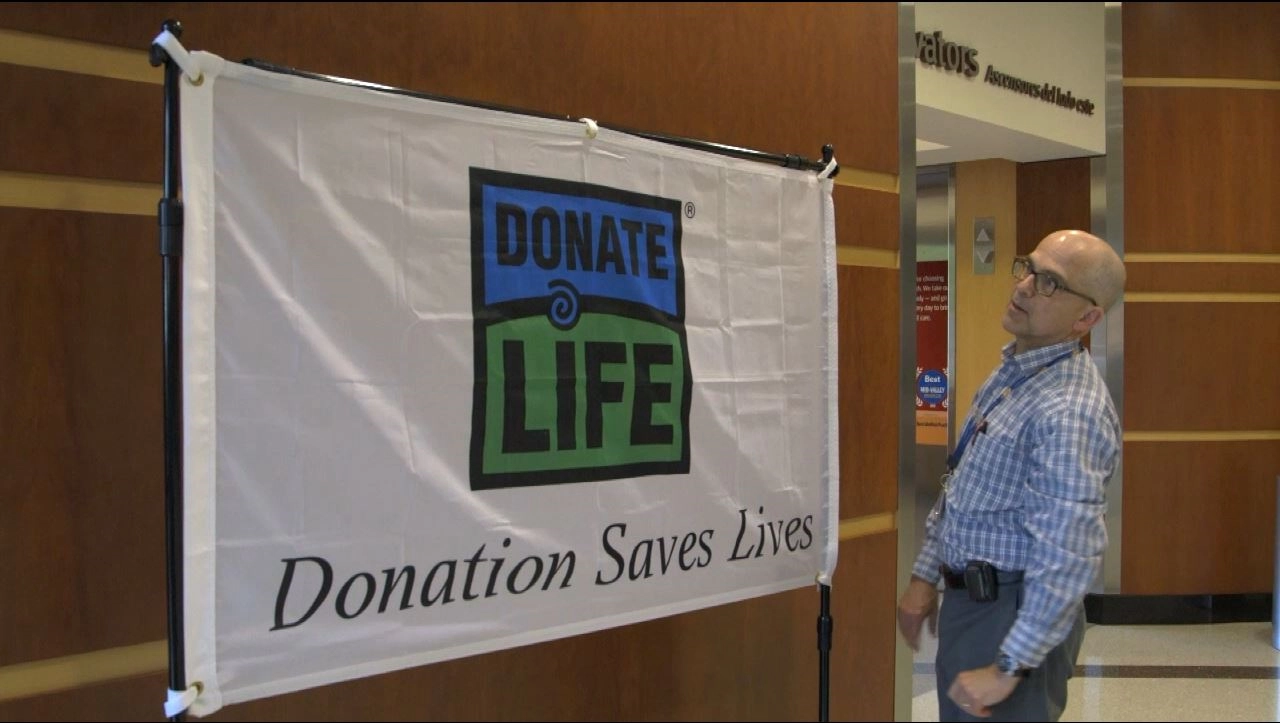Salem Hospital’s organ donors: 'The definition of superheroes'

By registering as an organ donor, you can save up to eight lives at once.
The staff at Salem Hospital’s Intensive Care Unit say the hospital is always working to make the organ donation program better. This important effort helps save and change many lives each year.
Counting the impact
- In 2023, 22 patients donated organs.
- Those patients donated 61 transplantable organs.
- Those transplants impacted 61 lives.
How the program works
When a patient has been declared brain-dead or when their death is imminent, donation agency staff present the opportunity for donation to their families. The patient’s organs are optimized with medications and a ventilator until recipients are selected from the waiting list.
If a patient does not meet the criteria for brain death and their family wants to pursue organ donation, the patient has the potential to become a donor after circulatory death.
Eligible recipients come from the national transplant waiting list, administered by the United Network for Organ Sharing (UNOS) and the Organ Procurement and Transplantation Network (OPTN). A recipient is selected after matching with a compatible donor. A match is determined by factors such as tissue type, blood type, organ type, height and weight.
Organ recovery and procurement procedures often take place in Salem Hospital’s own operating rooms. The actual organ transplant procedure does not happen at Salem Hospital.
There are several locations where a transplant can occur. UW Medicine in Seattle is a well-known hospital for lung transplants, and Stanford Medicine is known for heart transplants.
Myths about organ donation
Salem Health ICU nurse Lisa Lewis said there are several common myths her team works to address with patients' families:
- MYTH: If I’m a registered organ donor, and I have a medical event, the doctors won’t try to save my life. They’ll try to take my organs. FACT: “Our goal still remains saving our patient’s life,” Lewis said. “Organ donation is a separate team.”
- MYTH: My family can override my decision to be an organ donor. FACT: If you are a registered donor, it means you have given first-person consent. Your family can’t override your decision in this case.
- MYTH: There are limitations and restrictions on who can donate. FACT: Anyone of any age, race, background or health condition can be a donor.
- MYTH: Organ donation will add a financial burden for my family. FACT: There is no cost to the family for any part of organ donation.
Supporting families
Salem Health chaplains provide support to families who are losing a loved one. That includes guiding them through the process of a patient donating organs.
“[Chaplains] provide emotional support and spiritual support, try to meet with families in a way that helps them process: What are their values? What are the values of the patient? Is donation something that aligns with those values?” chaplain Jess Hansen explained.
Hansen said it can be tough to navigate those decisions while grieving a loss.
“Losing someone you care about is awful, but organ donation can bring feelings of hope and meaning. Your loved one’s final gift can save another life” she said.
Hansen said Salem Health also encourages families to write notes describing what they know and love about the donor patient.
“That note goes with them down into the operating room and is read before any sort of procedure happens. It gives everybody on the medical team a real picture of who this person is and the gift that they’re giving to other families,” she said.
Lewis said organ donors provide a final, selfless act of saving multiple lives at once, providing hope amidst loss and grief.
“To have the selfless forethought to enhance and save other lives, that is the definition of superhero,” she said.
How to donate
You can learn more about becoming an organ donor by visiting the Donate Life Northwest website. People can register through the DMV or print a form to mail in. This is just one simple step that can impact the lives of many.